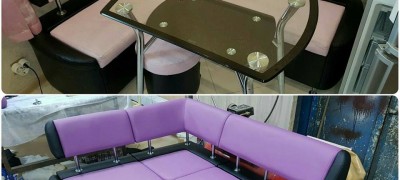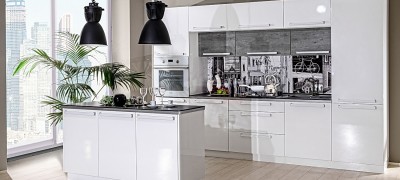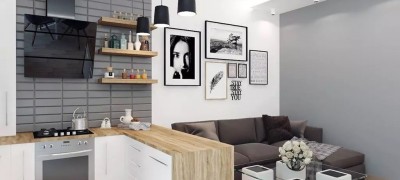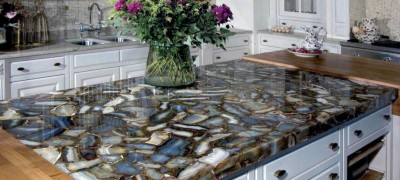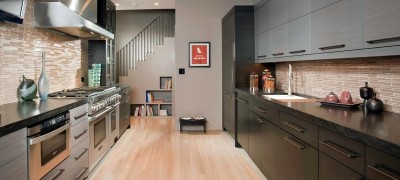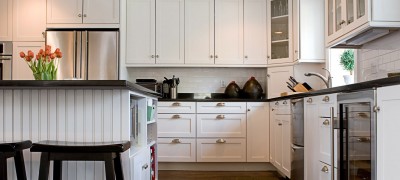How to attach skirting boards to your kitchen countertop
In the kitchen, the process of cooking, receiving, storing and everything related to this is constantly going on. Therefore, the issue of cleaning work surfaces is of particular relevance here. How to fix the plinth to the countertop, why you need it and what are the rules for caring for it - first things first. And you need to start consideration with what function it performs.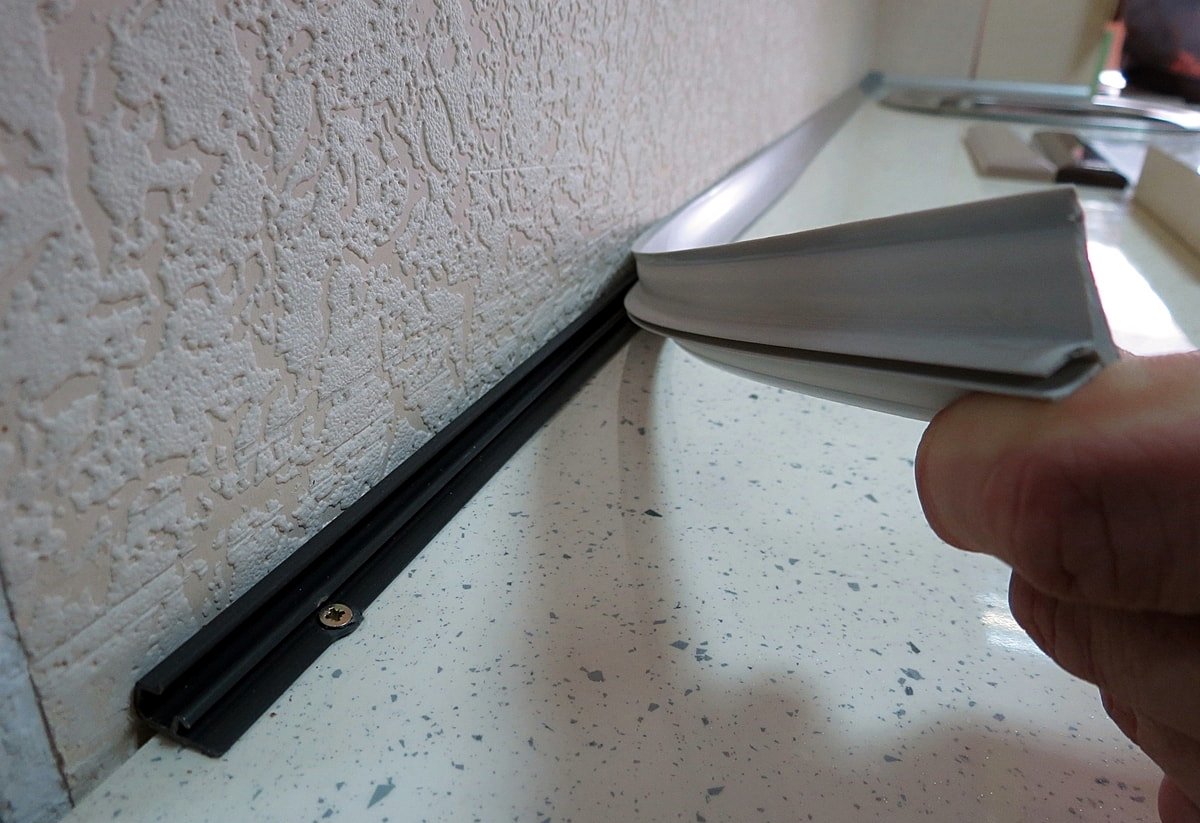
- What is the baseboard for the countertop for?
- Features and types of kitchen skirting boards
- Varieties of skirting boards by design
- How to choose the right one
- What are the differences and which type to choose?
- How to attach a skirting board to a worktop
- Care rules
- Video: how to independently install the baseboard on the countertop
What is the baseboard for the countertop for?
It is the tabletop that serves as a kind of springboard, where processing, cleaning, and cutting of products unfolds. And even in the case of using a board, there is no insurance against small pieces of food falling into places that are hard to clean.
The skirting board covers the space between the furniture and the wall. It can be a corner or any other shape. At the same time, the aesthetic appearance of the kitchen is improved. How to attach the corner to the countertop and what types are there, we will consider further.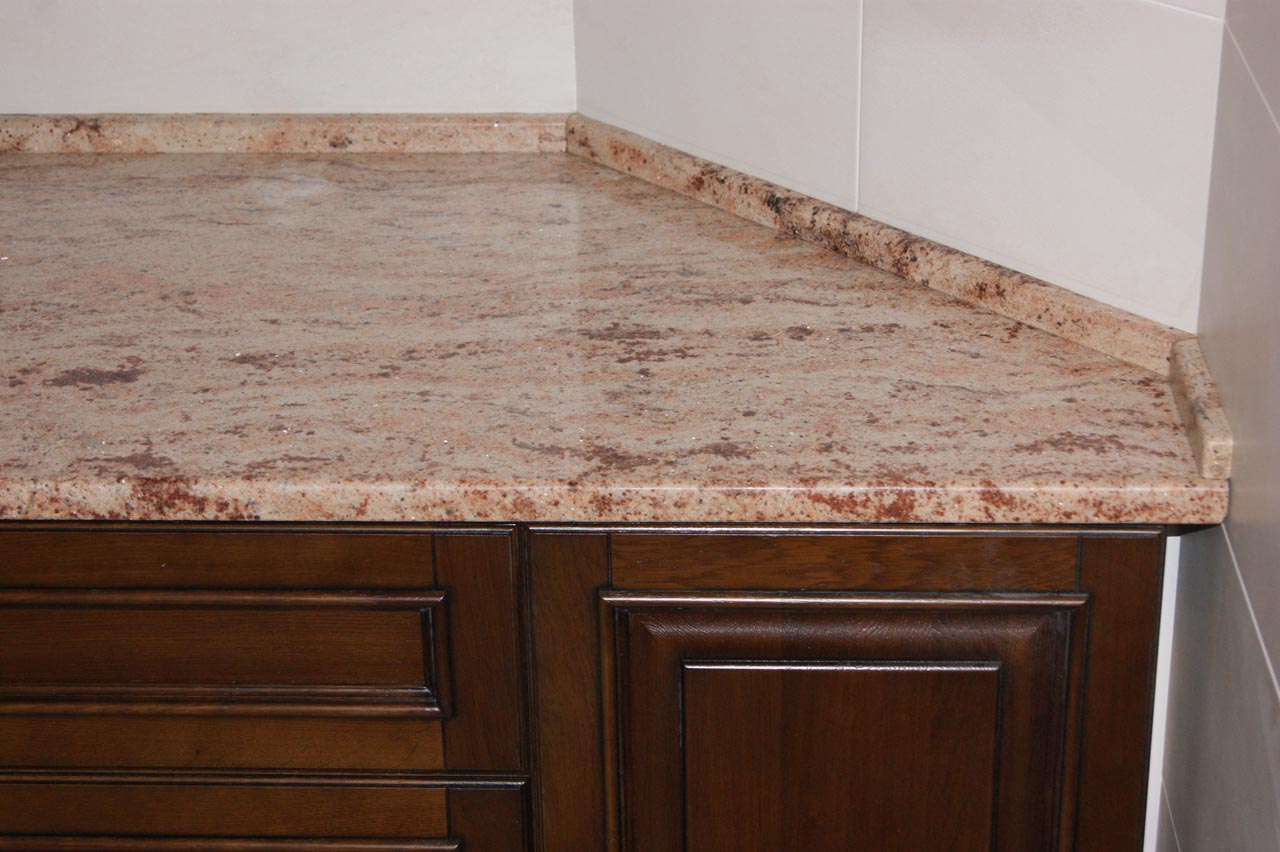
Features and types of kitchen skirting boards
Masking the joint between the headset and the wall is not the only task of the skirting board. And despite the importance of the aesthetics factor, protection against moisture ingress, damage to furniture must also be taken into account.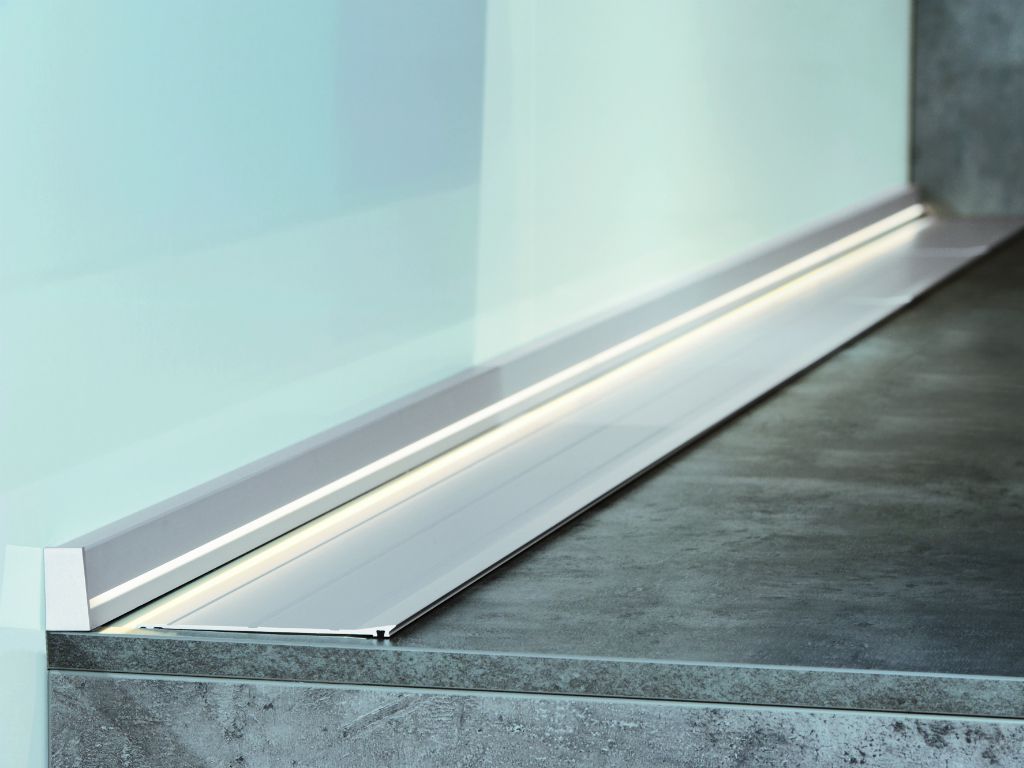
When buying a new kitchen, the set includes furniture skirting boards, joints and plugs. But it is not uncommon for a headset to be assembled in separate elements. In this case, the manufacturer will not complete the furniture with skirting boards, which automatically translates the selection of this element into your competence. The variety of materials and shapes is huge.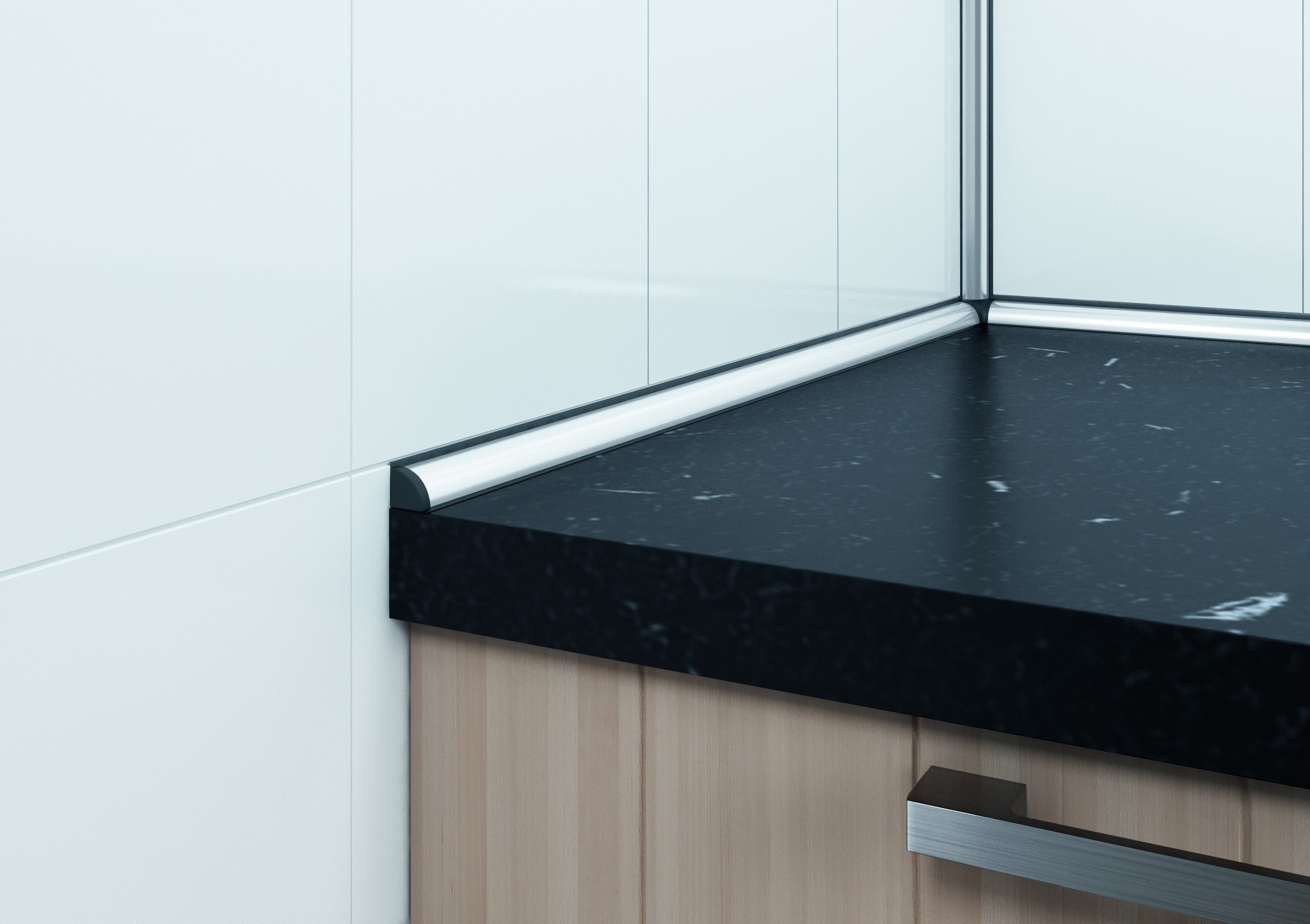
Your attention is invited to consider three main ways to choose profiles:
- The most common phenomenon is the selection of a kitchen skirting board based on the characteristics of the work surface. If you order profiles and joints based on the numbers or the name of the decor, please note that the shade may differ from manufacturer to manufacturer.
- Identity of materials. It is understood that the skirting board is made by the manufacturer from the same material as the kitchen unit. For example: if the table top is made of wood, a profile is cut from the main board for perfect compatibility and visual creation of a monolith.
- Third method. This method is more designer, because the selection of the plinth is carried out on the basis of its maximum similarity with the color of the handles and the type of material.
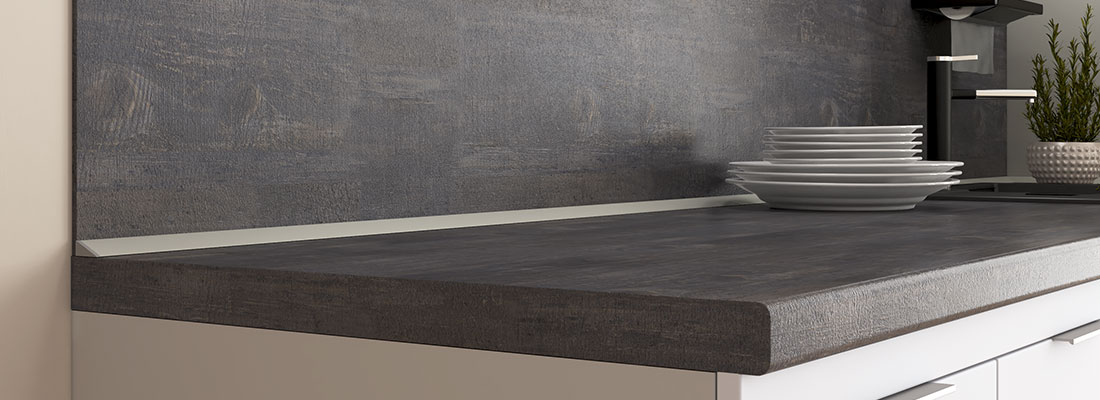
When choosing a profile, first of all consider its physical properties. They are individual for each material.
Plastic
The strong demand for plastic products is driven by durability, practicality and affordability. The manufacturer achieves aesthetics and textures for plastic skirting boards by laminating. The color is formed by adding pigment. Hence, a huge number of shades and options for imitating natural materials: wood, metal, stone and others.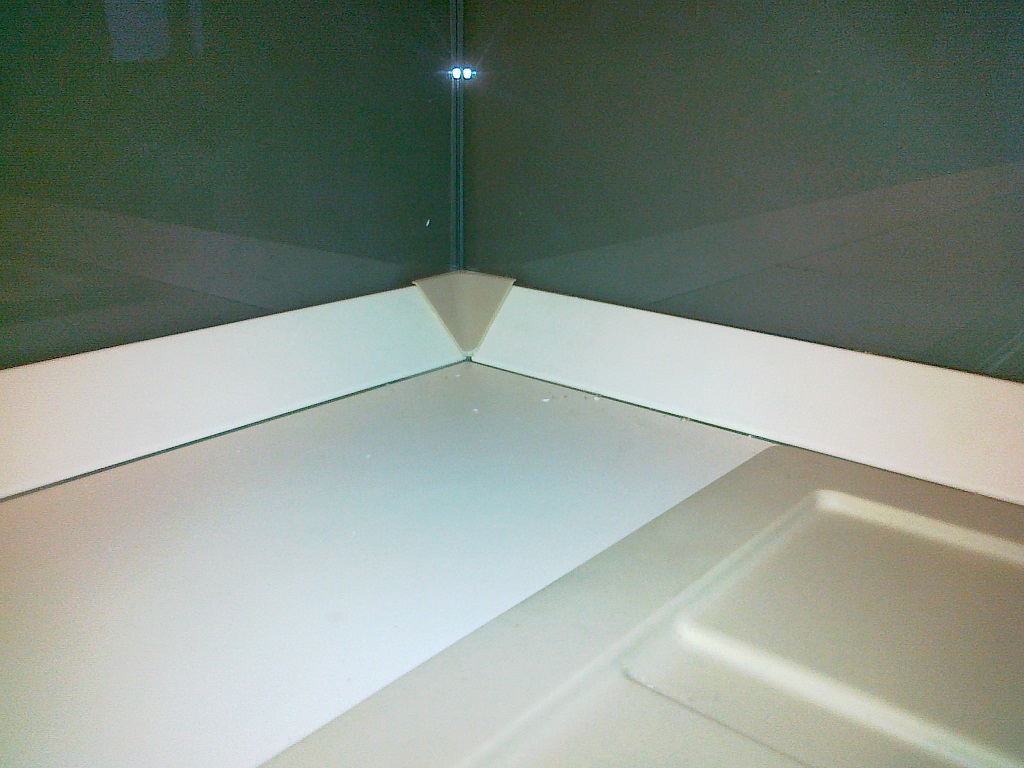
Texture options:
- smooth;
- gloss;
- matte and pebbled.
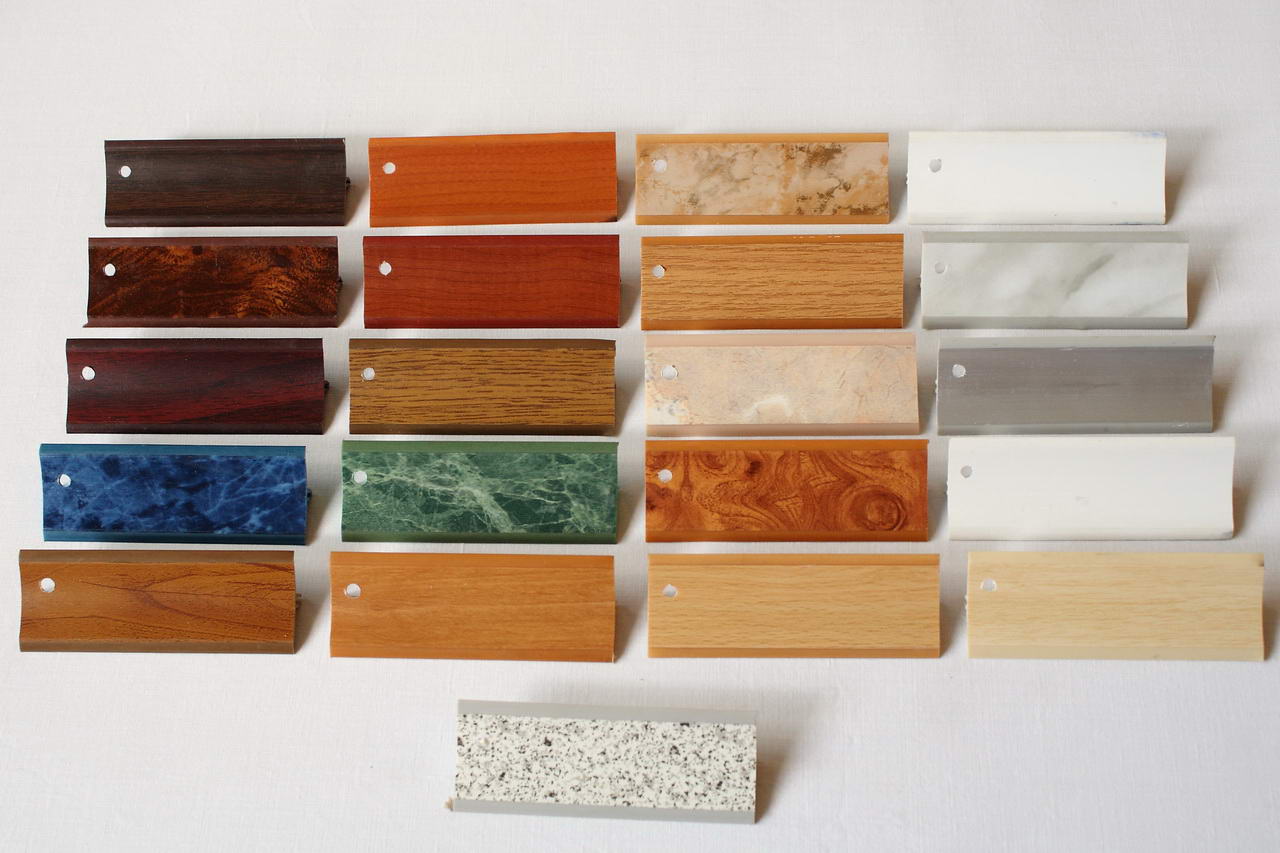
Plastic is also appreciated for its ease of installation, because it bends and is cut quite simply. The main bonus is moisture resistance. In fact, water cannot harm plastic in any way. It is enough to simply wipe the profile from this material.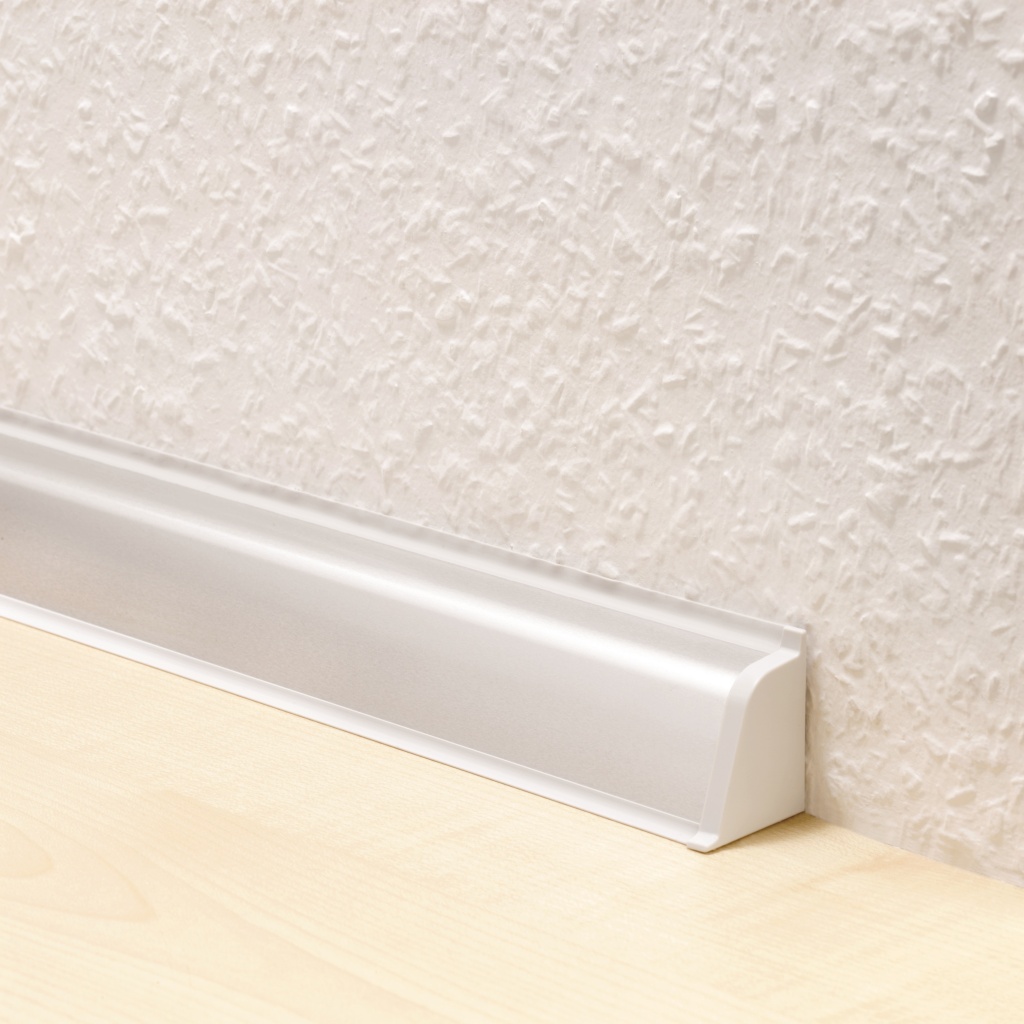
Aluminum
Thanks to the adonation process (covering the surface of the slats with a special film), a good protective layer is formed: durable and moisture resistant. These profiles last much longer than the headset itself.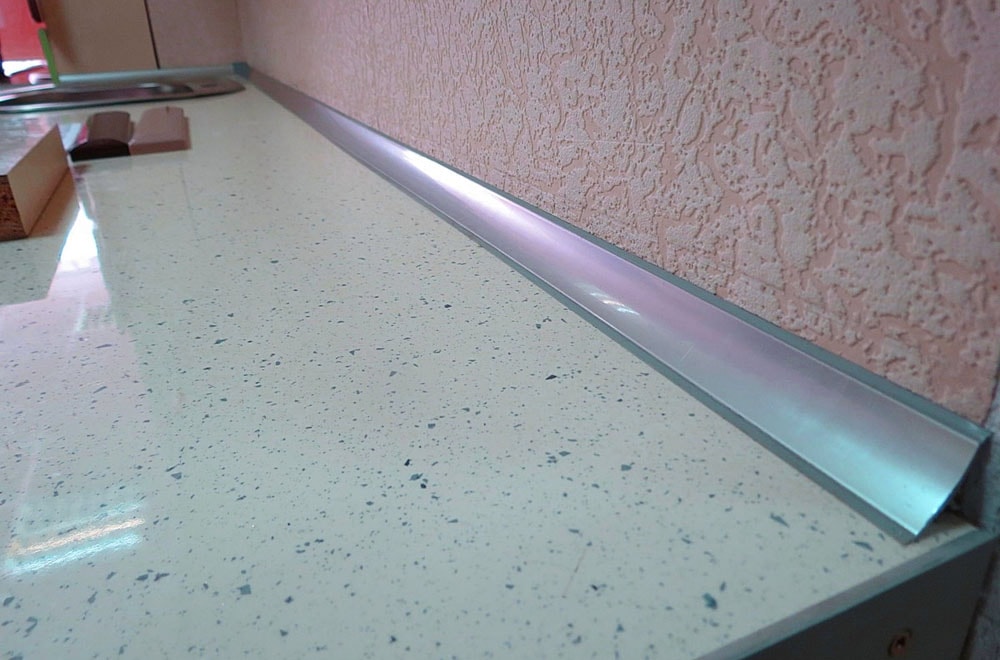
PVC skirting boards have a drawback - they are "afraid" of exposure to high temperatures, which is not typical of aluminum. In addition, it is an electrical insulating material. The cost is slightly higher than that charged for plastic products.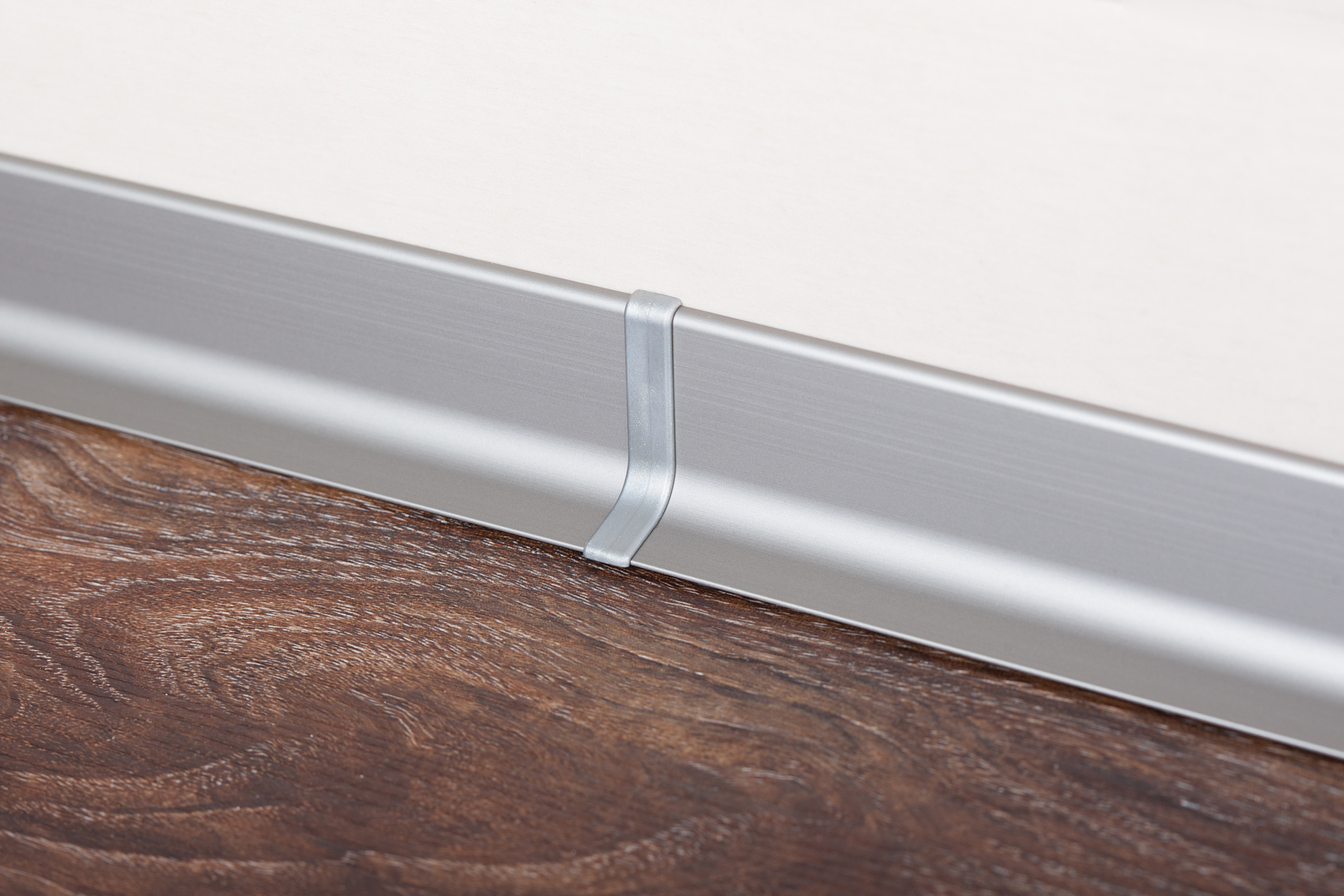
Metal-plastic
Metal-plastic products have combined the advantages of the previous profiles. With the advantages that aluminum and PVC models have, metal-plastic in fact has no disadvantages. Among the possible: lack of flexibility (worsens the possibility of hiding wall irregularities with a snug fit) and some installation problems.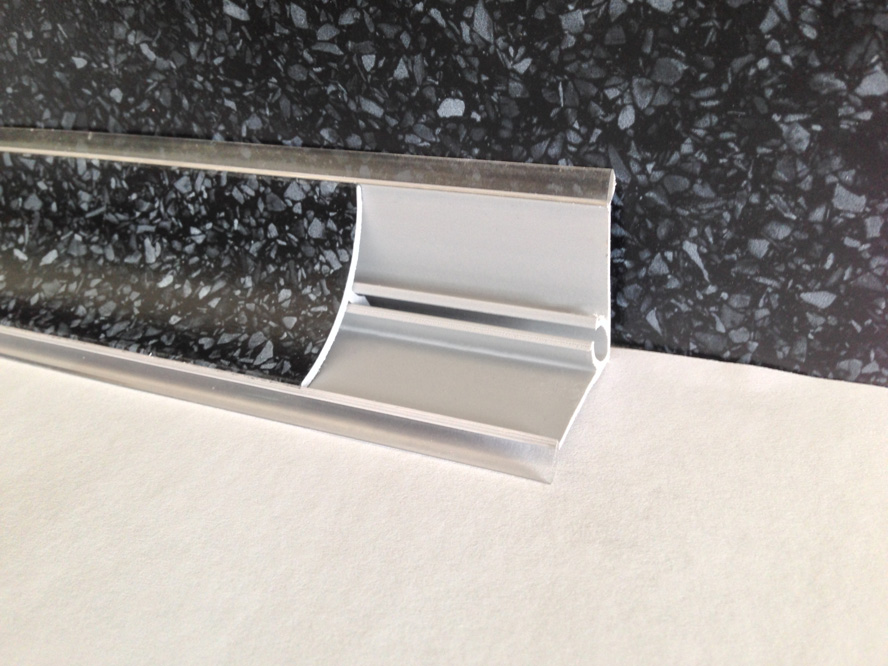
Varieties of skirting boards by design
It is not only the type of material that allows the classification of skirting boards and influences their choice. There are design differences. There are only such varieties: universal and cast profile. The features of each type are important when choosing. And it is fair to consider both options to get an objective picture.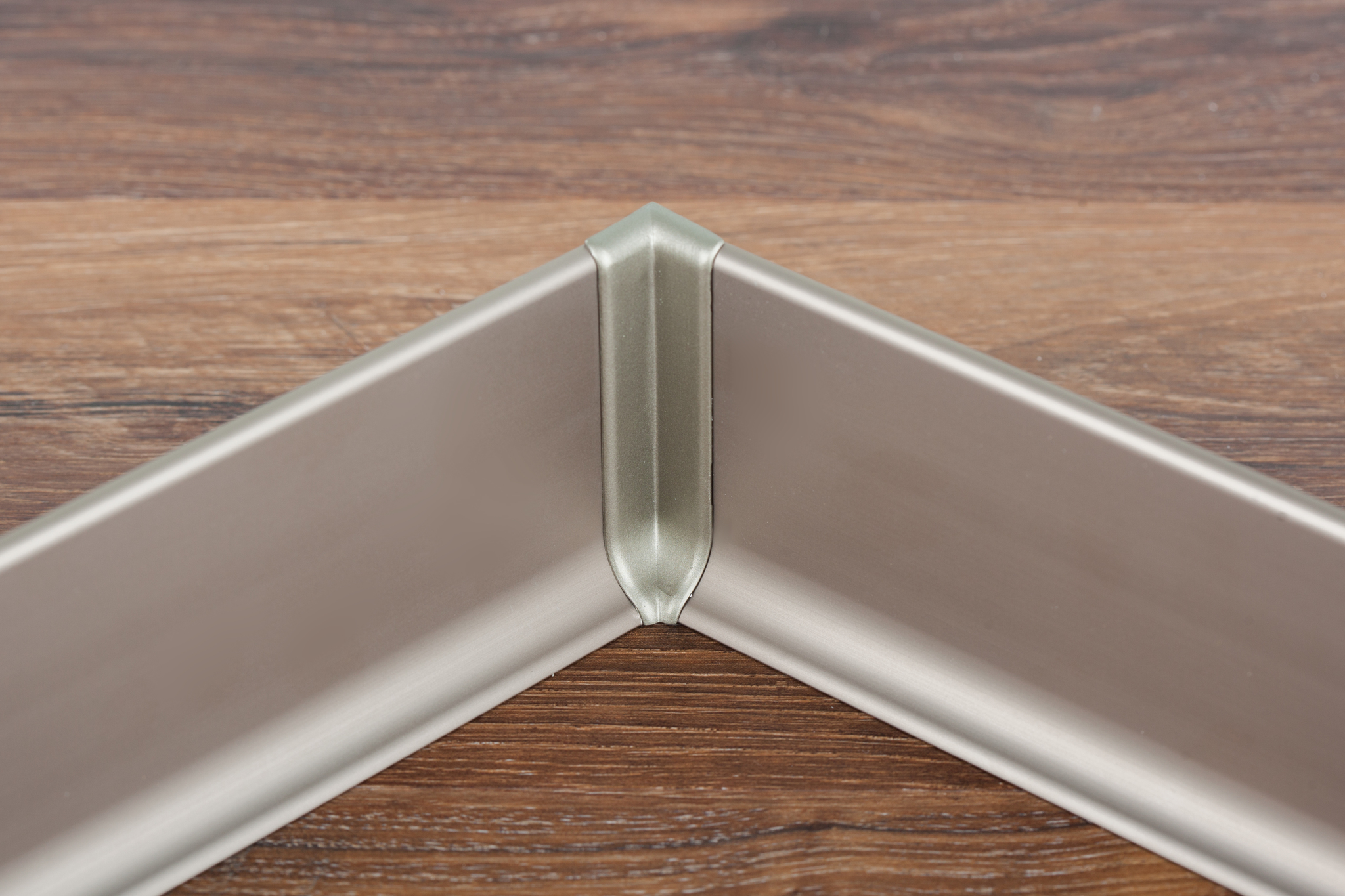
Universal
The design feature of universal skirting boards is the presence of silicone gaskets. The inserts are replaceable and their appearance is decorative. The skirting board is easier to change due to the type of joint. Protruding edge holders can be confused. The length of the profile sections is on average 35 cm. It is convenient enough to mount.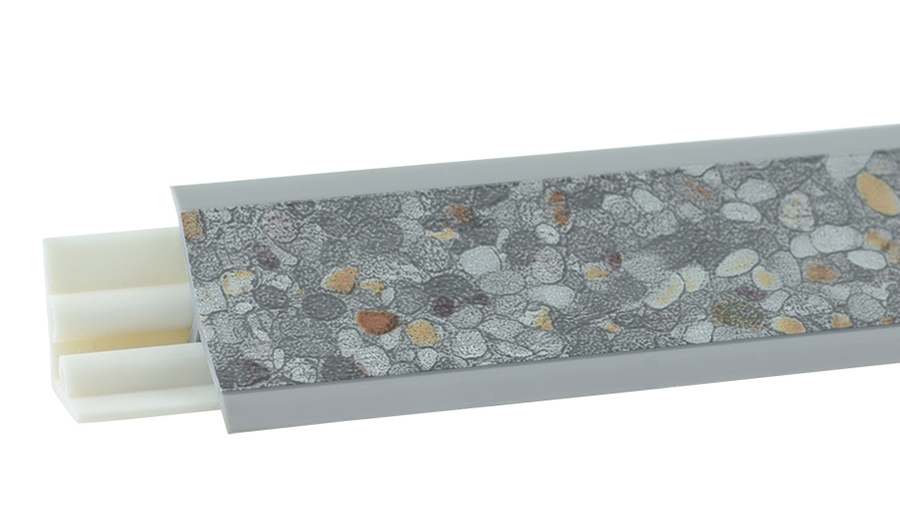
Cast
The type of construction assumes an increased level of rigidity and massiveness. The absence of a silicone profile assumes attachment to the seal. Among the visible advantages: long service life and presentable appearance. Their dimensions are almost 10 times larger than the previous design option.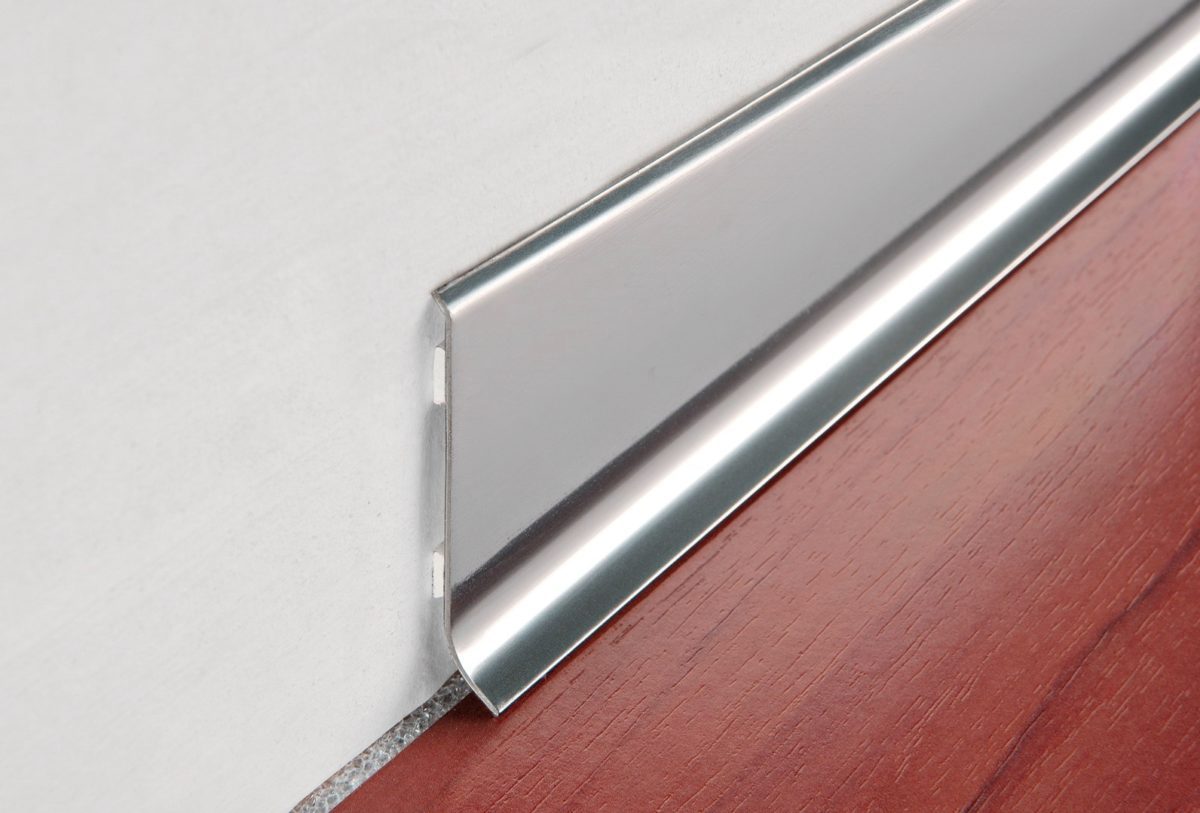
How to choose the right one
The choice of skirting boards can be shaped depending on the type of section. There are 2 of them: composite and solid. Depending on this parameter, the order of installation and the physical features of the structure as a whole will be determined.
What are the differences and which type to choose?
Compound section
The category is considered the most popular, which includes products from: aluminum, stainless steel and plastic. The profile is based on two parts at once: the back and front parts. In the first case, the role of the component is fixation (base). The decorative function is performed by the front side. There is also an option with the introduction of a third panel - a decorative tape. It can imitate metal and tabletop material.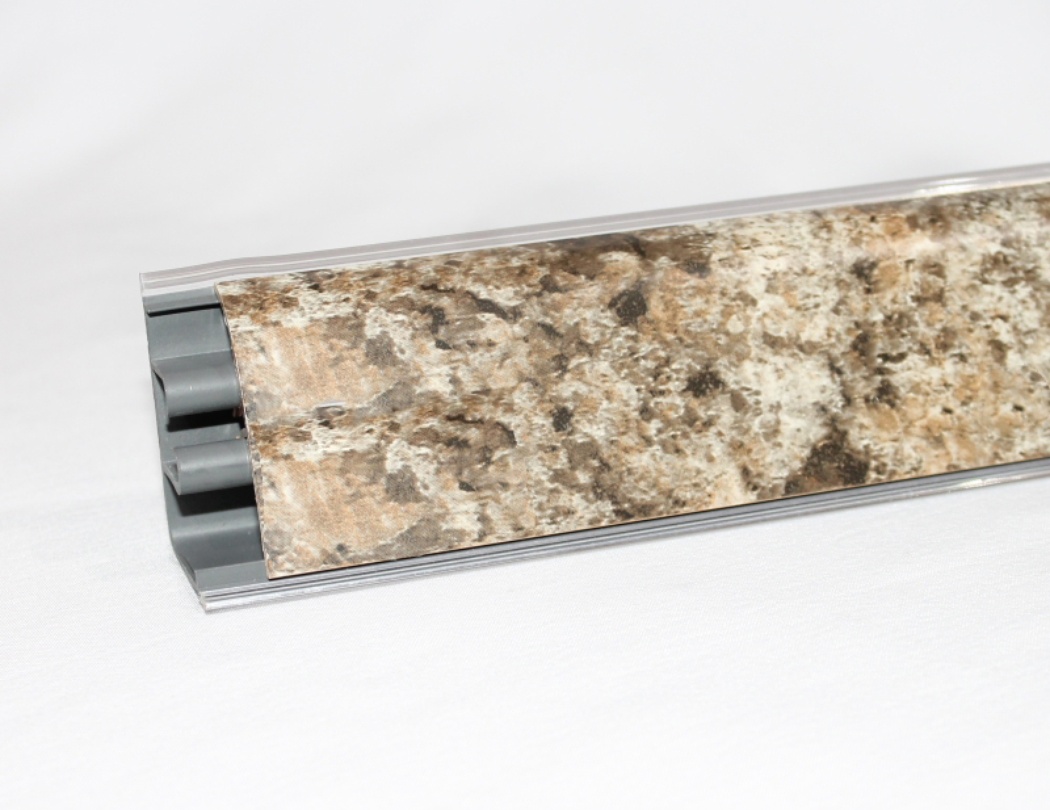
Grooves are provided for tight holding and fixing of the decorative tape. Plastic parts are used as mounting elements.
Are completed with:
- plugs (providing aesthetics);
- inner corner;
- outer.
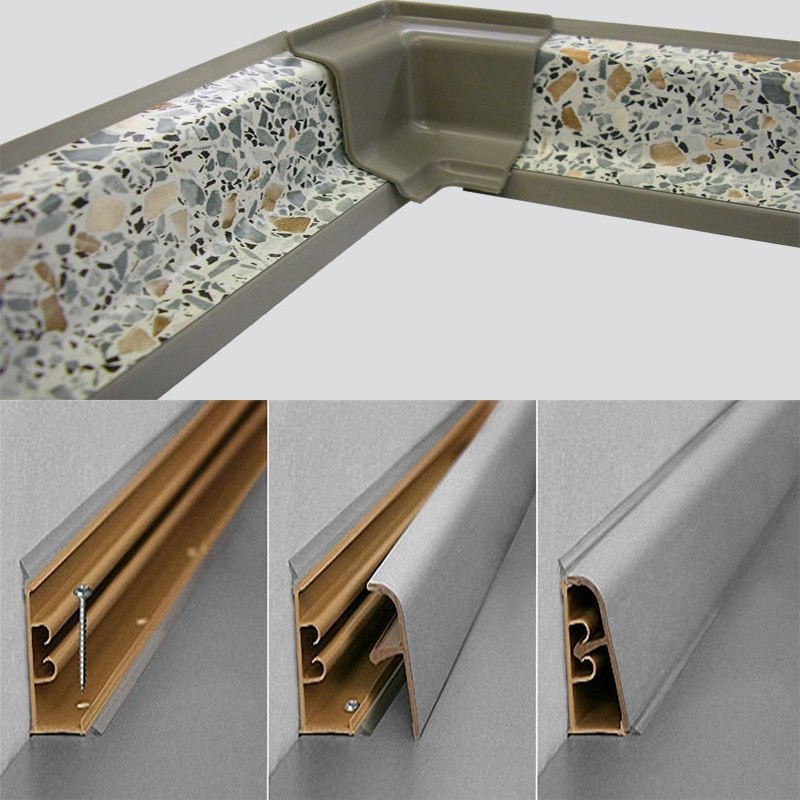
Calculate the number of mounting kits in advance so you don't have to go to the store twice.
Solid section
Found in curb-type skirting boards. This class of products includes a wide variety of custom-made products.For example, artificial stone, granite, wood, ceramics, etc. Not very common, but included in the same group of skirting boards, are made of stainless steel.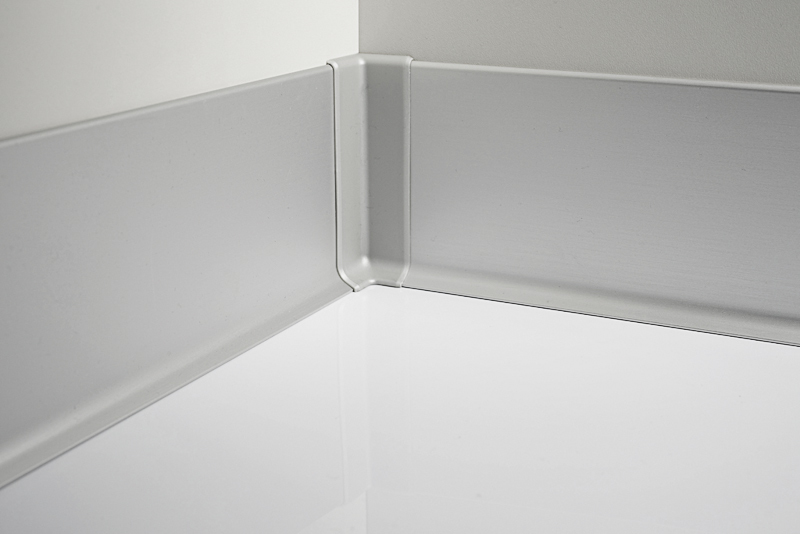
The disadvantages are manifested in the high cost and the absence of a silicone seal. Processing and installation can also be counted among the disadvantages.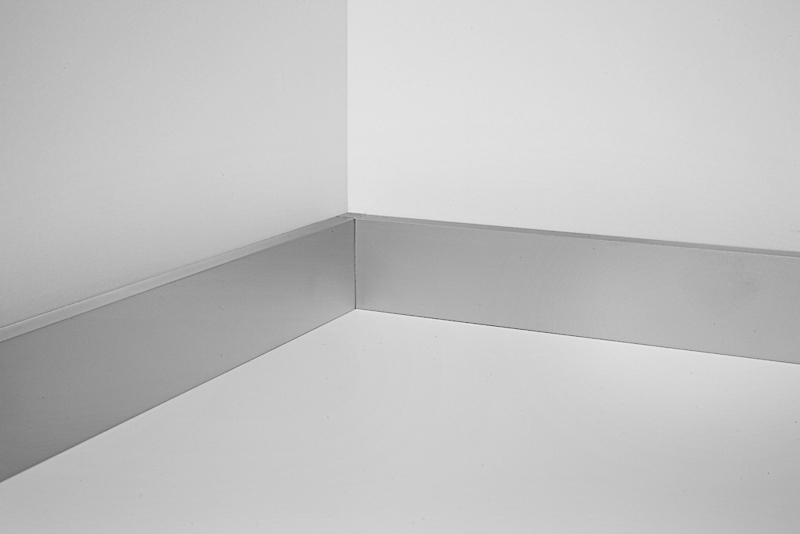
How to attach a skirting board to a worktop
Among the main methods of fastening, there are 2 main ones: self-tapping screws and glue. It all depends on the presence / absence of special holes for self-tapping screws, the characteristics of the material, its plasticity, flexibility and other aspects. Let's consider both methods in detail.
Fastening with self-tapping screws
This method is considered more reliable, therefore it is more often chosen. The technical implementation is also straightforward.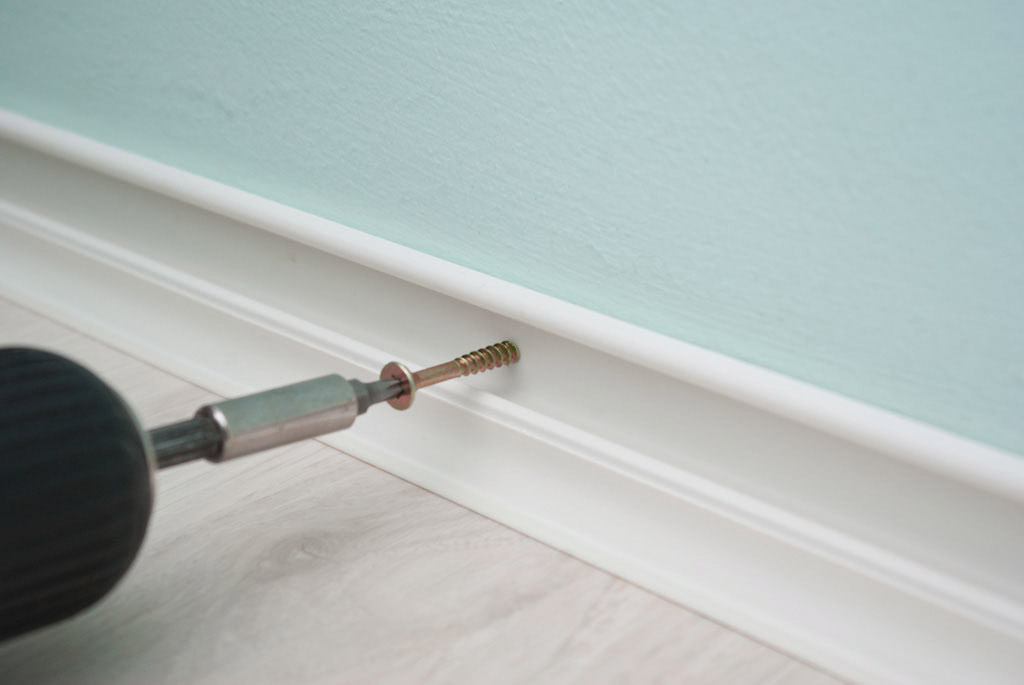
Algorithm of work when fastening with self-tapping screws:
- The decorative panel must be detached from the base.
- Set the number of related materials required for installation (plugs, corners).
- Lay out the structure (in fragments). This will help establish whether there are enough materials for the work, indicate the need to adjust some of them in length.
- Not all skirting boards have silicone seals. In the event that they are absent, you need to degrease the surface of the countertop and apply a small layer of silicone.
- Installation work is carried out from the corner, along the surface of the table top. The step of fixing the base of the plinth with self-tapping screws should not exceed 30 cm, but you should not do less than 20.
- For reliability of installation and optimal fixation, self-tapping screws are selected galvanized, if not, brass. They are not afraid of metal corrosion.
- In order for the screws to hold tightly, dowels are pre-hammered into the wall, into pre-prepared holes.
- The faceplate is installed immediately after fixing the base. The ends of the skirting board are closed with plugs for aesthetics.
Plugs may not always fit tightly. In this case, place them on rubber glue or silicone.
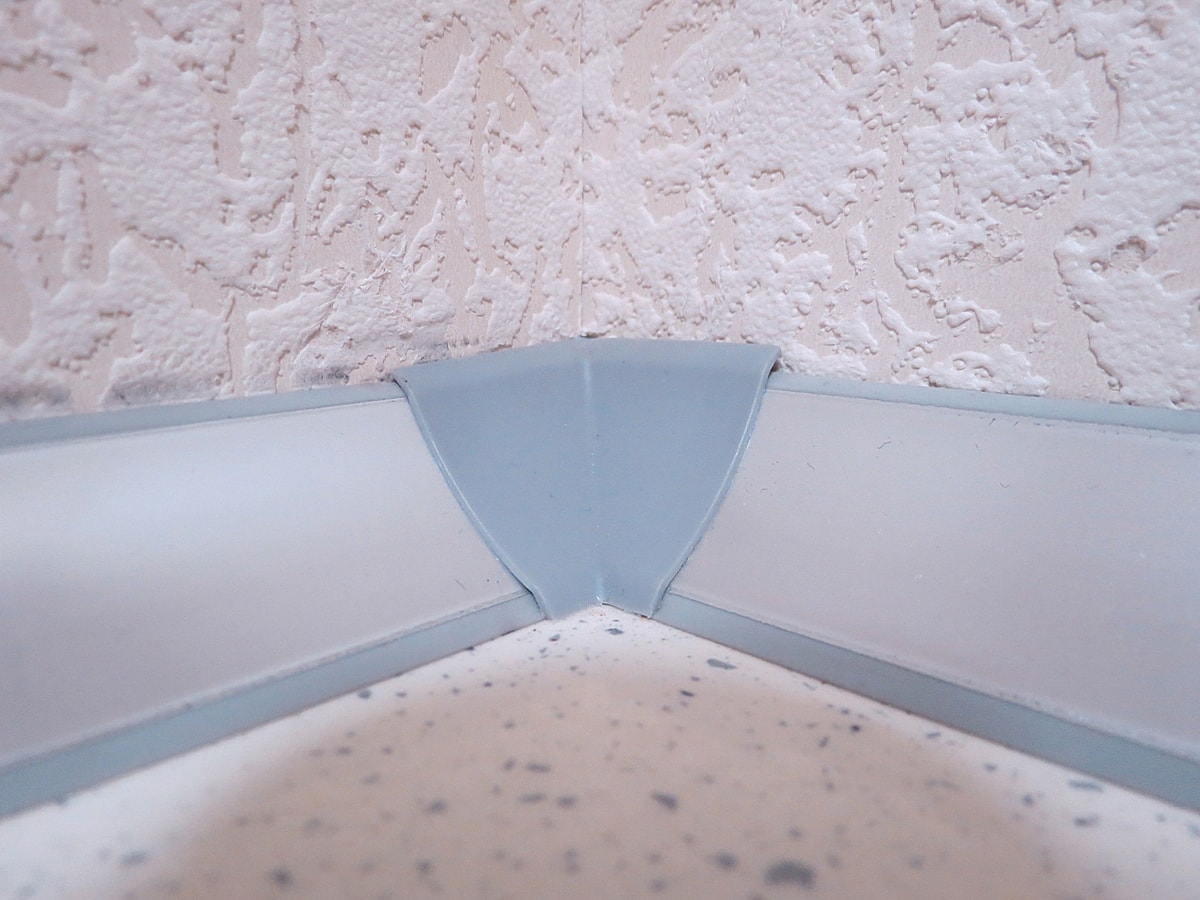
Fastening with glue
Curbs can be glued to the surface using liquid nails. If there is a need to glue skirting boards made of artificial stone, then you need to choose substances on an acrylic basis, two-component. To make the joints invisible, the color of the glue is selected individually.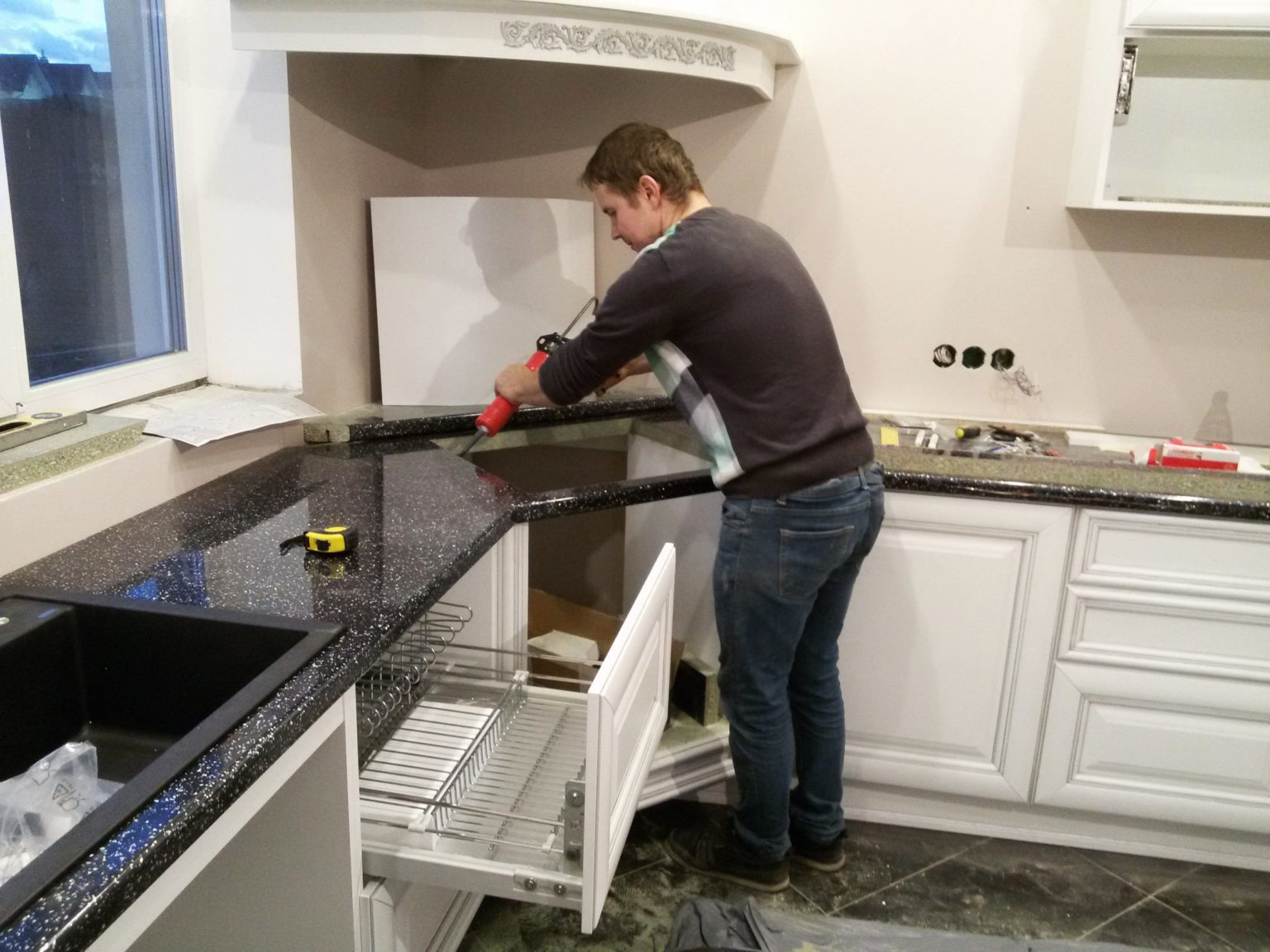
The algorithm for carrying out work does not differ from fastening with self-tapping screws, with the exception of:
- the need to degrease the surface to securely fix the glue;
- the need to wipe off the remnants of the glue immediately until it dries (excess);
- no need to prepare connectors and drill anything.
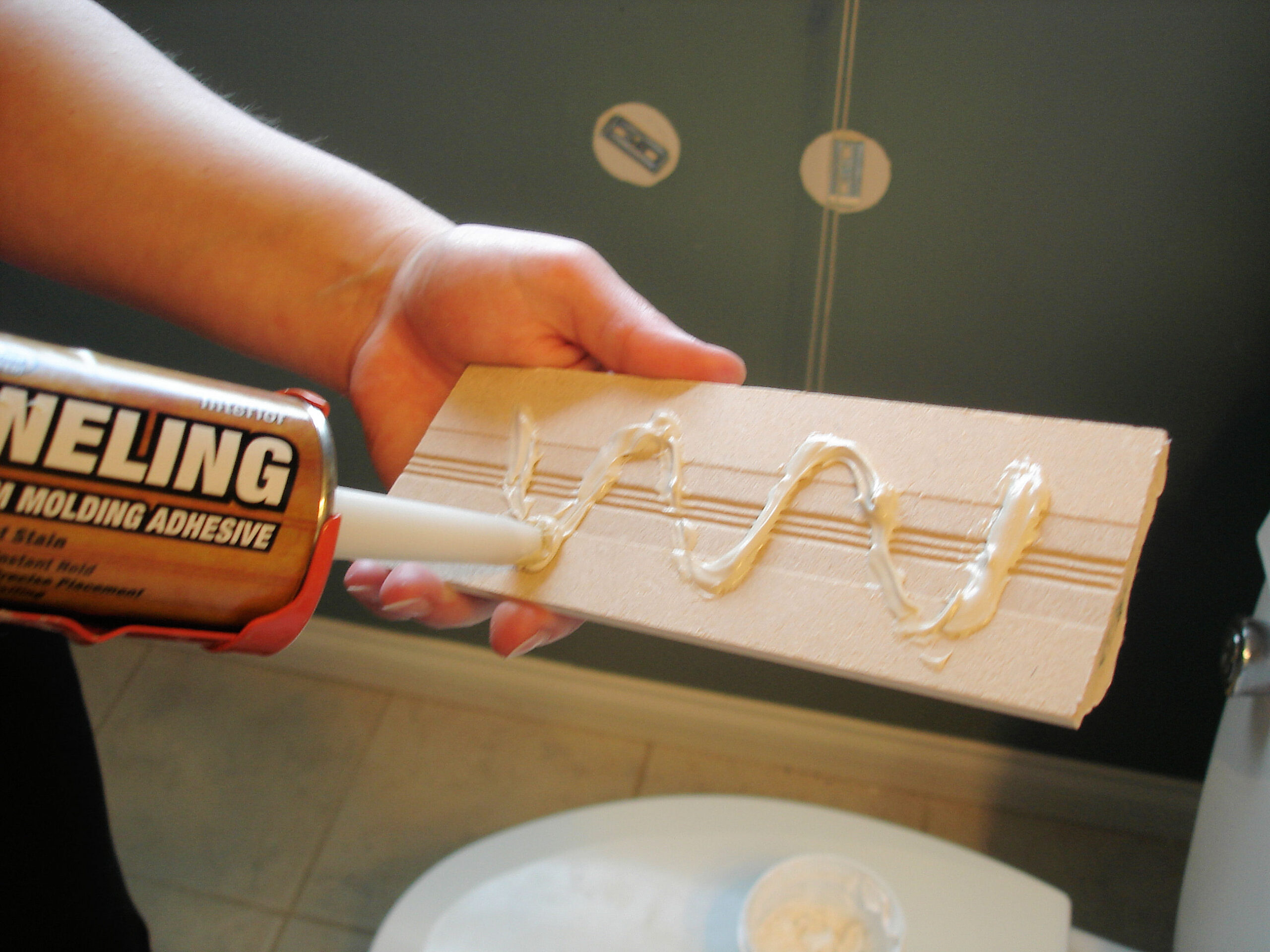
In places where the surface is uneven, a thicker layer of glue should be used. It is easier and faster to work with glue. But self-tapping screws are still stronger and more reliable.
Care rules
The main function of the skirting board as a barrier is to prevent liquid or solid household waste from getting into hard-to-reach places, which has properties to decompose under the influence of the kitchen microclimate. Therefore, if gaps appear between the countertop and the baseboard, they must be eliminated. Transparent silicone is suitable for this.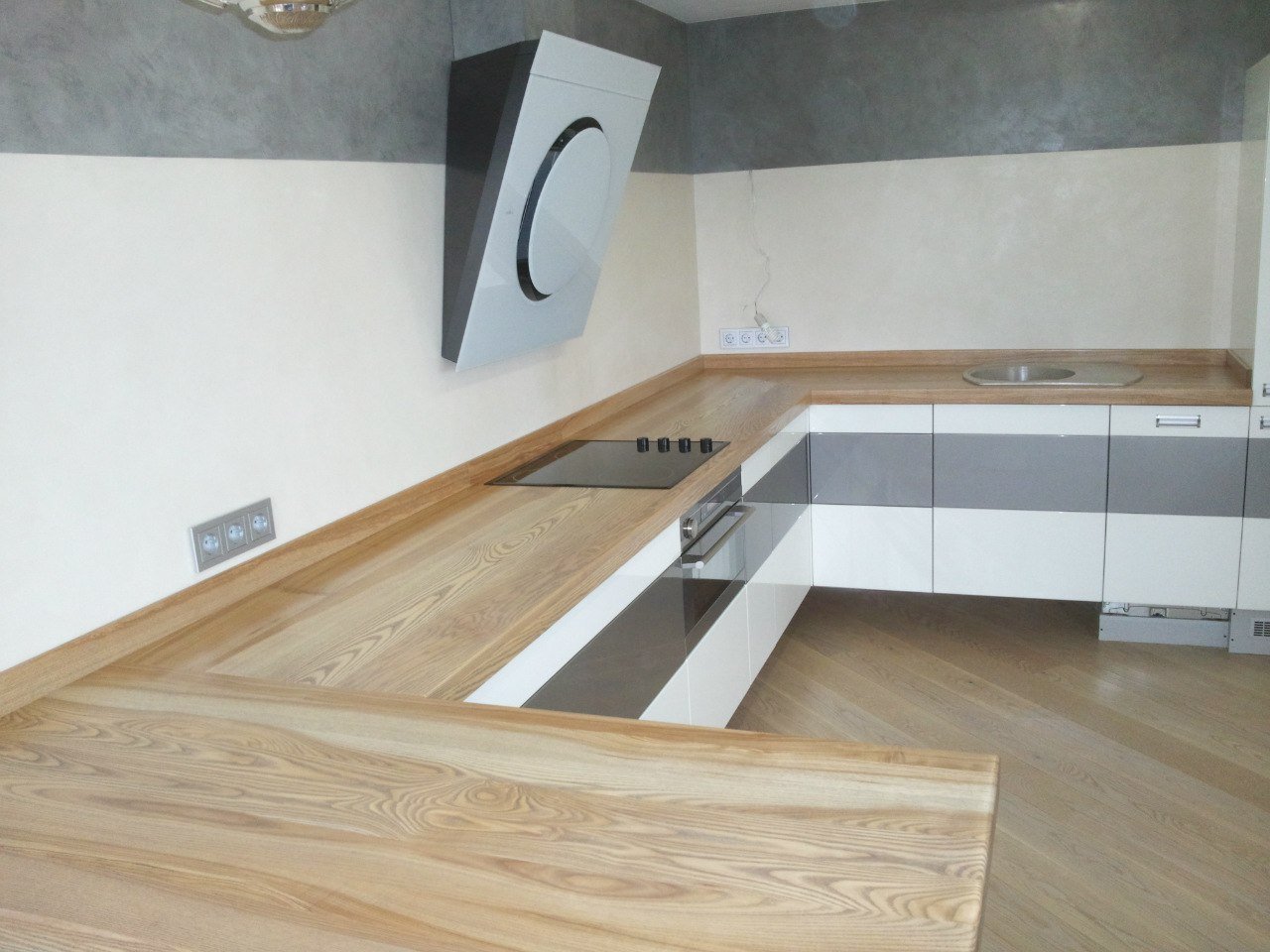
Otherwise, there are no special rules of care (except for the obvious ones - to avoid contact with hot objects, if the profile is PVC).
Video: how to independently install the baseboard on the countertop
